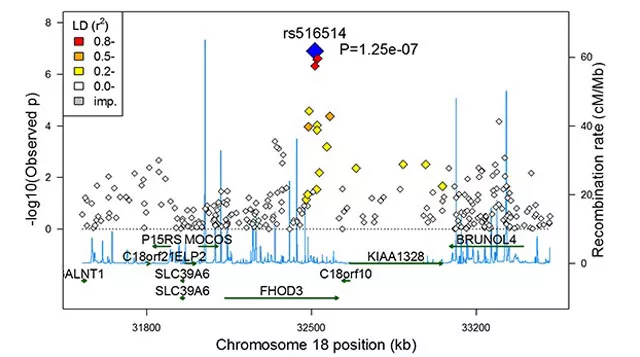Current projects include:
A particular focus for our laboratory is the identification of genetic contributors to Cardiomyopathy, including both Hypertrophic and Dilated. Recently, we are exploring the use of novel genetic approaches for the comprehensive identification of rare and common coding variants associated with heart muscle disease. These large-scale genetic screens are supported by an active collection of DNA and serum samples from patients of the Tufts Medical Center Cardiovascular Center and through participation in collaborative studies including the Dilated Cardiomyopathy Precision Medicine Study.
Causative factors of heart muscle disease include environmental insults such as ischemia/infarction, high blood pressure, toxins, drug exposure and atypical genetic changes. The Huggins laboratory is analyzing how a member of the formin family of genes contributes to heart muscle disease including hypertrophic cardiomyopathy (Figure 1).

This highly conserved gene is required for normal heart function in flies as measured by optical coherence tomography (Figure 2).

Lab members
- Sarah Powers, Research Associate